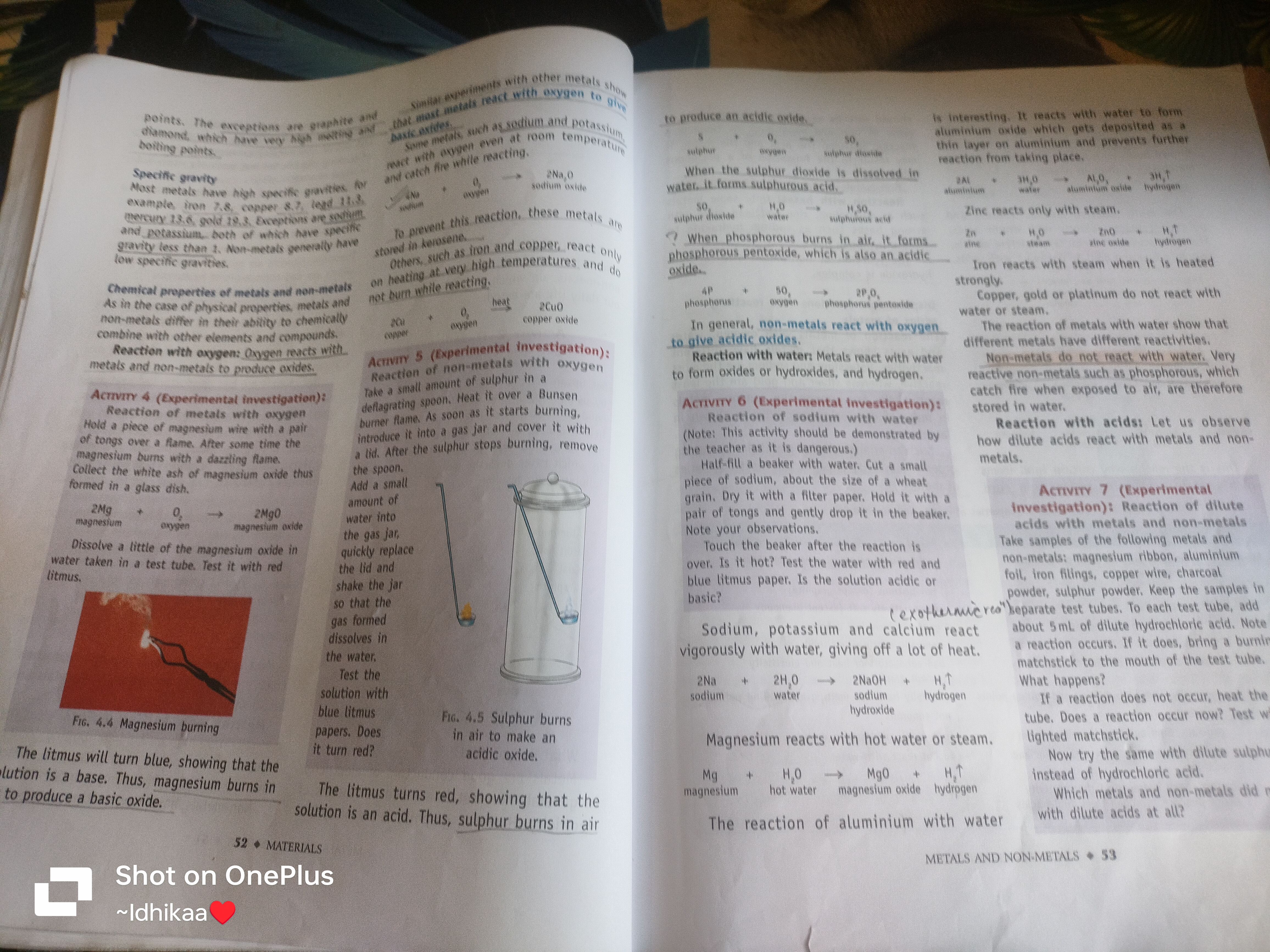What are the chemical properties of metals and non-metals when reacting with oxygen and water?

Understand the Problem
The text discusses chemical properties of metals and non-metals, specifically their reactions with oxygen and water to form acids or basic oxides. It outlines several experimental activities to observe these reactions.
Answer
Metal oxides are basic; non-metal oxides are acidic or neutral. Metals react with water to form hydroxides and hydrogen, non-metals don't.
Metals react with oxygen to produce basic oxides, whereas non-metals form acidic or neutral oxides. Metals can react with water to produce metal hydroxides and hydrogen gas. Non-metals generally do not react with water.
Answer for screen readers
Metals react with oxygen to produce basic oxides, whereas non-metals form acidic or neutral oxides. Metals can react with water to produce metal hydroxides and hydrogen gas. Non-metals generally do not react with water.
More Information
When metals react with oxygen, they form basic oxides (e.g., magnesium oxide). Non-metal oxides, like sulfur dioxide, can be acidic or neutral. Sodium and potassium react with cold water vigorously, producing heat, hydrogen gas, and hydroxides.
Tips
A common mistake is thinking that all metal oxides are soluble in water. This isn't always the case. For example, aluminum oxide doesn't dissolve well in water.
Sources
- Chemical Properties of Metals and Nonmetals - CK12-Foundation - flexbooks.ck12.org
- Chemical Properties of Metals and Non-metals - GeeksforGeeks - geeksforgeeks.org